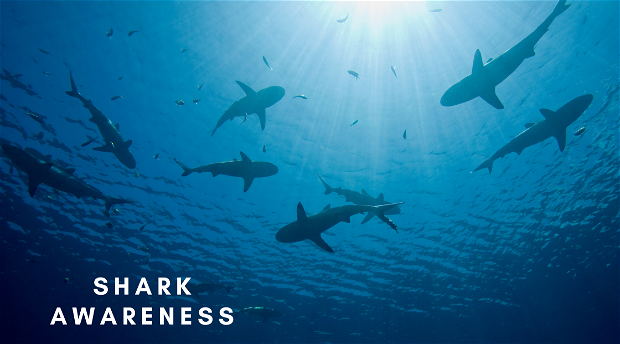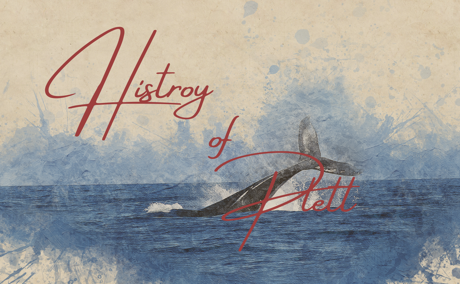Plettenberg Bay is known for its beauty, as well as its rich history; which began during the time when Bartolomeu Dias chartered the bay in 1487, and named it Bahia das Alagoas (‘Bay of the Lagoons’). During the 15th century, Plettenberg Bay was then named Bahia Formosa (‘Beautiful Bay’) by Portuguese navigator and cartographer, Manuel de Mesquita Ptrestrélo (Christopher Columbus married into this famous family of seafarers).
Shark Awareness

Shark Awareness is a universal goal to understand one of the most fascinating sea creatures of this world. Sharks (like fish) date so far back in history that scientists refer to them as “living fossils”. Sharks have been on the earth for 420 million years, and have survived five mass extinctions.
HISTORY
Shark Awareness is a universal goal to understand one of the most fascinating sea creatures of this world. Sharks (like fish) date so far back in history that scientists refer to them as “living fossils”. Sharks have been on the earth for 420 million years, and have survived five mass extinctions.
DECLINE
Over the decades, their numbers have dwindled, and their species are in decline due to measures taken to protect ourselves as well as hunting for their skins, meat and fins.
Due to overfishing, many shark organisations have made shark meat illegal. However, many fishing companies refuse to follow laws and protocols, and continue to catch sharks for personal gain. Moreover, scary and dangerous images of sharks; the movie Jaws comes to mind, has led to unnecessary killings of their species. Their population has been reduced to a staggering 71% since 1970. They have an incredibly slow reproduction cycle, taking a long time to recover their numbers that are deteriorating at an alarming rate.
WHY THEY ARE IMPORTANT
Did you know that the absence of sharks would be devastating to ocean life? As apex predators, they help remove the weak and sick, and also shift their prey’s spatial habitat, which alters their feeding strategy and diets for other species. Through their spatial controls, sharks indirectly maintain seagrass and coral reefs.
By taking sharks out of the coral reef ecosystem, larger predatory fish; such as groupers, increase and feed on herbivores. With less herbivores, microalgae expands and coral can no longer thrive, shifting the marine ecosystem into algae dominance.
Sharks’ control over species below them in the food chain indirectly affect the economy. A study showed that the loss of Great White sharks in a fishing village gave rise to the increase of rays. The rays ate all the bay scallops, forcing the village to close their only means of supporting their families.
Sharks are important, and it is essential that we learn to coexist with them. After all, it is their territory, and we are but guests in this wide world of exotic marine creatures.
INTERESTING FACTS ABOUT SHARKS
· There are 500 species of sharks, and 143 of them are under threat.
· They vary in size. From the Dwarf Lantern Shark (the size of a human hand) to the largest Whale Shark, spanning 12m in length.
· They are weird and wonderful! Goblin sharks are bright pink in colour, and there are even the Cookie Cutter Sharks, named so because of the round ‘cookie’ bite marks they leave.
· Most sharks are cold-blooded. However, the Great White shark is partially warm-blooded, allowing them to move faster when hunting prey.
· Sharks have a 6th Sense. Known as the ‘amupllae of lorenzini’, it is found on the shark’s snout, and can sense temperature shifts in the ocean, and electric fields emitted by animals in the surrounding water.
· Great White sharks avoid conflict. Great White sharks rarely resort to combat with each other and humans. Even though shark attacks occur, they are generally ‘picky eaters’ and are not inclined to prey on humans.
· Great White sharks can devour a whole seal, and won’t need to eat for another three months.
· They are apex predators and belong in the wild. Sharks do not cope in captivity and eventually die when they’re not in their natural environment.
· The aging shark. Scientists can tell a shark’s age by counting the rings on their vertebrae.
· Some sharks are pregnant for two years. You thought carrying a baby for nine months was rough? Imagine carrying a child for two whole years! The Spiny Dogfish species of sharks take about two years before delivery, making it the longest gestation period of any vertebrate.
Whatever peoples’ views are on sharks, they are fascinating to behold. No other species from the animal kingdom has starred in many Hollywood films such as sharks. However, it is humans who have cornered sharks, putting them under threat of extinction.
Because of this threat, there has been a rise of ever-growing passionate shark supporters around the world, who understand the importance of these wondrous creatures and the effect they have on the marine ecosystem. Shark Awareness Day (14th July) is dedicated to helping people understand these fiercely misunderstood creatures. Join your local watch for Shark Awareness Day and help where you can so that these creatures do not fall under the extinction category.
Further Reading
Whether in calm or stormy weather, The Heads has proven itself time and again as the greatest antagonist to ships; be it small fishing boats to great schooners and brigs. No matter what technology mankind may perfect in years to come, nature will always have the upper hand.
Stretching 300km from Mossel Bay to the Storms River, the Garden Route is the most popular tourist attraction for all travellers and holiday seekers. It derives its name for the lush, shady evergreen forests, deep gorges and wide sandy beaches, stunning lakes and lagoons, as well as a wide variety of birds, sea mammals and wildlife.




Share This Post